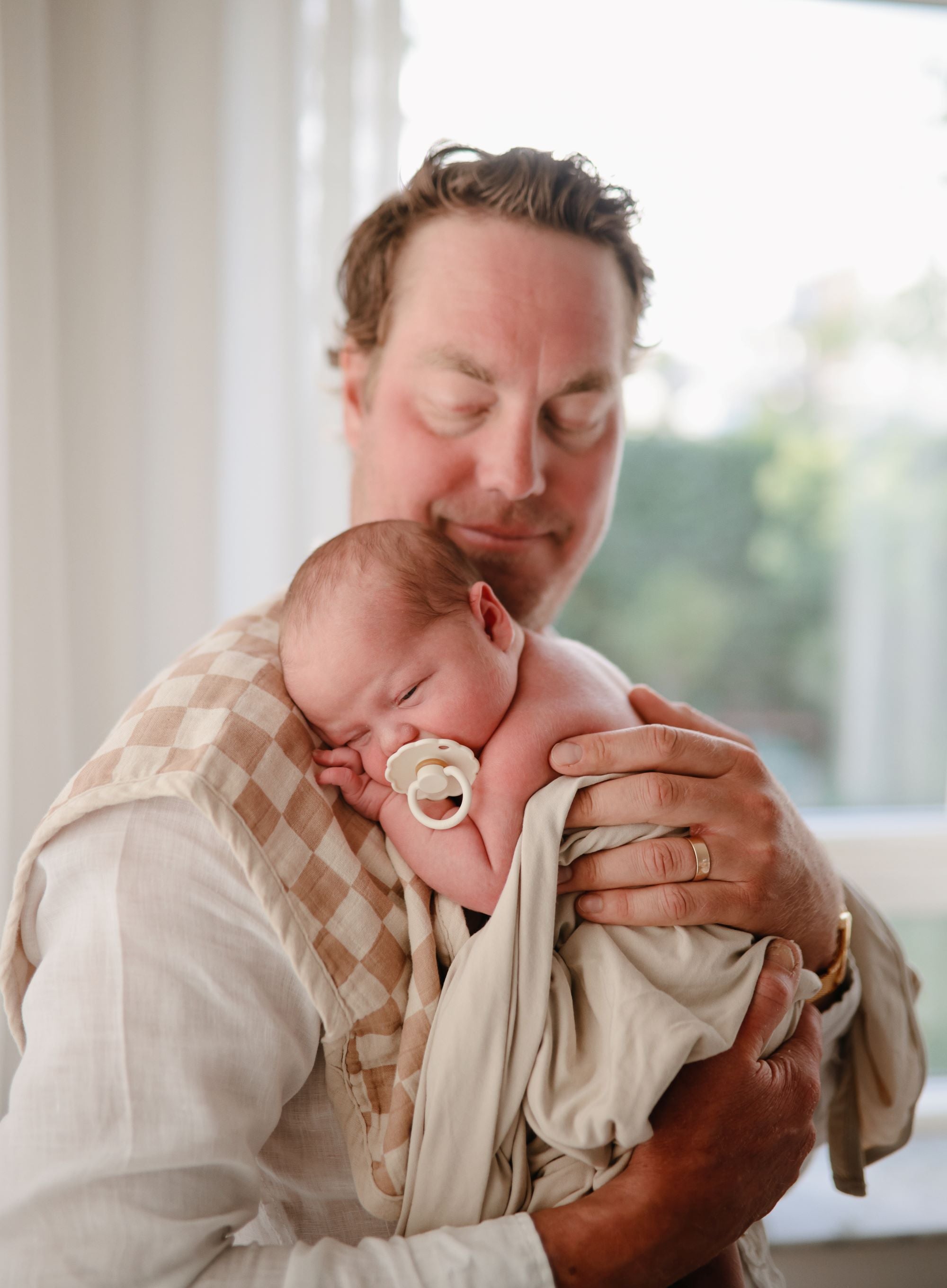As a new parent, understanding your newborn's sleeping and feeding patterns during the first month is crucial for the well-being of the entire family. These patterns may feel unexpected at first, but they are actually normal. Here's a complete explanation so you can be more confident in facing this phase.
What to Expect from Newborn Sleep and Feeding Patterns
-
Sleep in Short Cycles
- Newborns sleep about 14–17 hours a day , but in short durations, usually every 2–4 hours, both day and night.
- Their sleep patterns are not yet regulated by circadian rhythms (the body's biological clock), which only develop around 6–8 weeks of age.
-
High Frequency Breastfeeding
- Babies will breastfeed every 2–3 hours (8–12 times in 24 hours), because their stomachs are still small and their digestion is fast.
- This includes night feedings, so parents need to be prepared for frequent waking.
-
Can't Sleep All Night
- Most babies don't sleep through the night (6–8 hours without waking) until they are 4–6 months old, when their tummies can hold more milk or breastmilk, and their sleep patterns become more mature.
- However, some babies may start sleeping longer at 8–12 weeks , especially if their weight gain is steady and they are healthy.
Signs Your Baby is Ready to Sleep Longer
- Stable Weight : The pediatrician ensures that the baby is gaining weight well.
- Longer Wakefulness Periods : Babies begin to stay awake longer during the day, indicating a maturing sleep-wake pattern.
- Reduced Frequency of Nighttime Feedings : Babies naturally begin to reduce the need for nighttime feedings.
Safe Sleep Guidelines (AAP Recommendations)
-
Always put your baby to sleep in the supine position
- Put your baby to sleep on his or her back on a firm, flat surface (such as a crib or bassinet) to reduce the risk of Sudden Infant Death Syndrome (SIDS).
-
Sharing a Room, Not a Bed
- Place your baby's sleeping area in the same room as you for at least the first 6 months, but don't share a bed.
-
Avoid Pillows and Other Soft Items
- Use only a fitted sheet in the crib—no pillows, blankets, or toys.
-
Keep Baby Smoke-Free and Breastfeed If Possible
- Both of these things reduce the risk of SIDS and support healthy sleep patterns.
Newborn Baby Sleep and Feeding Schedule (First Month)
Here's a simple schedule to help with the routine:
6:00 AM – Wake up and feed
- Give breast milk or formula (about 15–30 minutes).
- Short wake times (10–15 minutes), such as changing diapers or holding.
7:00 AM – Nap
- Let the baby sleep for 1–2 hours.
9:00 AM – Breastfeeding Again
- Followed by a short wake-up time.
10:00 AM – Another Nap
- Repeat the cycle of feedings, short wake times, and naps throughout the day.
9:00 PM – Bedtime Routine
- Start a simple bedtime routine (such as nursing, swaddling, and dimming the lights).
- Put your baby to sleep when they are sleepy but still awake to train them to learn to calm themselves.
11:00 PM – Evening Feeding
- Give milk, then soothe the baby back to sleep.
Overnight
- Your baby will nurse every 2–3 hours as needed. Keep the atmosphere calm so your baby can fall back to sleep quickly.
Alternative schedule for late starters
Tips for New Parents
- Follow Baby's Cues : Babies may not be able to follow a perfect schedule yet, so be flexible and pay attention to their hunger or sleepiness cues.
- Take turns resting : Share the evening chores with your partner so you don't get too tired.
- Focus on Safety : Even when you're tired, prioritize safe sleep practices to protect your little one.
Every baby has their own unique pattern, and their sleeping and feeding patterns will change over time. The most important thing is to be patient, flexible, and consistent during this magical early phase! 💕
Here are some reliable sources you can explore on this topic:
-
American Academy of Pediatrics (AAP)
- The AAP has a comprehensive guide to newborn sleep patterns, safe sleep recommendations, and parenting tips.
- Website : healthychildren.org
-
National Sleep Foundation
- Providing science-based information about baby sleep patterns and how to help babies sleep better.
- Website : thesleepfoundation.org
-
World Health Organization (WHO)
- WHO provides exclusive breastfeeding guidance and safety tips for newborns.
- Website : who.int
-
Centers for Disease Control and Prevention (CDC)
- The CDC has practical guidelines for safe sleep practices and SIDS prevention.
- Website : cdc.gov
-
Books and Resources by Sleep Experts
- The books "Healthy Sleep Habits, Happy Child" by Dr. Marc Weissbluth or "The Happiest Baby on the Block" by Dr. Harvey Karp are often recommended for new parents.
-
La Leche League International
- This organization focuses on breastfeeding support and provides information about infant feeding patterns.
- Website: llli .org
-
Local Pediatric Associations
- Seek information from pediatrician associations in Indonesia, such as the Indonesian Pediatrician Association (IDAI), which provides local and relevant guidance for parents in Indonesia.
- Website : idai.or.id
































































































